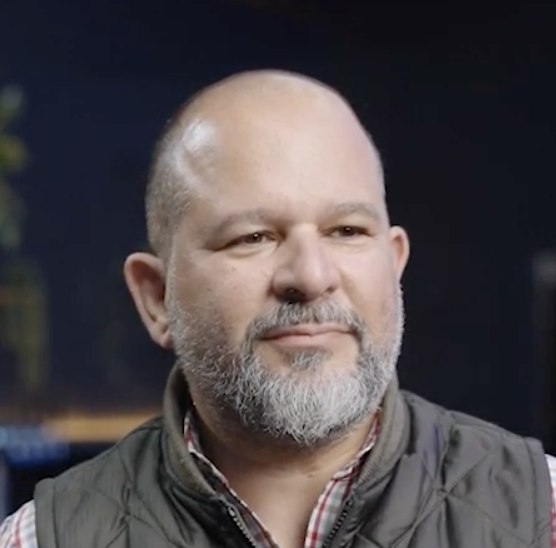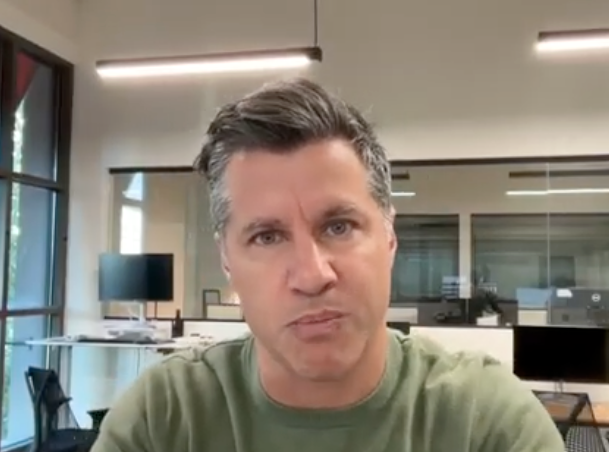
VCs Write Investment Memos, We Write Solution Memos
VCs Write Investment Memos, We Write Solution Memos
We aren’t VCs (we’ve explained some of our differences before), but as founders, we’ve seen the investment memos of our own companies — and we always appreciated the dispassionate analysis of the good, the bad, and the ugly.
These memos size the market, contextualize early product traction and situate the young company amongst its competitors. All the content that a startup should be including in their pitch deck. One benefit of our studio model, where we originate ideas ourselves, is that we start this analysis even before we hire a team or build out the minimum viable product. The Solution Memo is integral to how we determine if an opportunity is attractive.
At super{set} we look for data-driven company ideas, an opportunity space that’s as familiar as a SELECT * FROM superset_schema.ideas; query. In a world where we are still early in the data-fueled revolution, where we’ve only scratched the surface of the cloud-enabled TAM, there is an immense opportunity set across industries. From this “superset”, we know a data-driven problem when we see it and it is straightforward (for us, with 20+ years of experience as serial founders) to determine whether a potential solution is obvious or obscure.
It’s simple for us to tell if an idea passes the sniff test and if it can survive the reflective equilibrium of being passed back and forth between our team. The hard work is then lifting the hood to determine if the opportunity truly is groundbreakingly, world-changing-ly attractive or is ultimately unappealing. We start by asking a thorough set of questions to fully surround the problem and slowly build conviction:
- Why here? We first turf up specific instances of pain to find problems for us to solve. What industries are yet to be revolutionized by data? What are the challenges faced by market participants in those industries? What are the corollary benefits from solving those challenges? We talk to experts, our network, people at conferences, anons on twitter, strangers on the street — as many voices as possible. Where there is pain there are cures.
- Why us? Just because there is a problem doesn’t mean that we’re the ones to solve it. Our expertise is in data-driven solutions, so we delve into the vectors or possible angles of attack a solution might take. What are the jobs to be done? Who are the customer personas we are solving for? What are their tasks, goals, and dreams? What is the outline of a data-driven solution? We hit the streets with user interviews and take it back to the lab to map out technical architectures.
- Why now? A sustainable business isn’t just about solving problems, it’s about solving a problem for which there is or will be a paying market — so we next survey the market and the competition. What is the total available market — today and down the line as conditions evolve? Who else is attempting to solve this problem? What have they tried, and what seems to be working versus not? Crowded spaces don’t scare us, the crowded market simply validates that there is pain to be solved: the second mouse always gets the cheese.
The summation of these key questions is an artifact we call the solution memo — our version of the VC’s investment memo. The goal of this memo is to develop a dispassionate thesis on a formation problem and the exact solution that will solve it, including the data-driven “secret” and the outline of the unassailable technical moat behind the product.
Obscure opportunities take more work than the obvious ones, but we still put pen to paper on solutions that look obvious to make sure we aren’t getting high on our own supply. But not every opportunity goes from solution memo to full-fledged super{set} portfolio company. How do we decide which opportunities have the most potential?
Introducing Market-Message Fit
With the solution memo in hand, we make a go or no-go decision. The solution memo is the tool we use to build our internal conviction, and we ultimately gauge the attractiveness of an opportunity through a concept we call market-message fit.
You’ve heard of product-market fit. When you have product-market fit, you have a product in hand that can satisfy that market — as evidenced by the number of users or paying customers. Money is coming in from customers hand-over-fist, or the user base is growing as fast as your infrastructure can handle.
Market-message fit is the proto product-market fit. It is determining product-market fit before you even have the product. Or, at least, before you’ve built the product.
“Impossible!” you say. Not so. If we’ve researched the solution and compiled the dispassionate Solution Memo then we know everything we need to determine product-market fit. There are only two parts:
- The Problem: The basic challenges and pain points market participants face.
- The Solution: A coherent conception of what the thing is that will address those pain points. You can say what the product is out loud — thingify it — before writing a line of code.
From there, we iterate. We first persuade ourselves that we aren’t high when we’re talking about these solutions that come from scratch. Then we talk to people outside our circle — oftentimes going back to the same people from whom we turfed up pain in the beginning. Of course, don’t take in poor signal — the point here isn’t to ask for feedback, the point is an iterative communications process that forces clear thinking and articulation. It also enables us to abandon bad ideas more quickly and with unsentimental attachment
A prototype might be helpful at this stage but one isn’t necessary. We think of these as “disposable software.” Could be as simple as a Figma prototype, or you can sling some code to help potential users understand what we’re talking about. It isn’t a scalable product, just a tool for market-message fit. Once we have this clarity and precision the product roadmap organically falls into place and we see how the market is unfolding and how to stage and sequence the product accordingly — we must keep asking ourselves “why now?”
Product-market fit is great because anyone new to entrepreneurship can figure out if they have it — you’re either making money/growing users, or you aren’t. That said, you need a product in place. With market-message fit, you are pre-product. Market-message fit gives you the statements of pain that ultimately inform the product strategy that gets you to product-market fit!
The flip side is that not everyone can approach entrepreneurship through the lens of market-message fit. At super{set}, we have decades of experience as serial entrepreneurs that have gone deep into the product, and we have the framework and infrastructure for company-building that the startup studio facilitates. We combine the market’s responses to our gut feel developed over dozens of iterations. If you’re a first-time entrepreneur not at super{set} — DON’T try and pursue market-message fit!
We aren’t dilettantes latching on to the first ideas that come to us without due diligence, but we also aren’t over-engineering the company creation process or becoming lovestruck with convoluted, under-researched themes. We know that our strength as technologists is in building data-driven companies. Luckily, we see data-driven opportunities everywhere — across industries the concepts of data capital and data network effects apply again and again. Fads come and go, but data is eternal.
Tech, startups & the big picture
Subscribe for sharp takes on innovation, markets, and the forces shaping our future.
Let's keep in touch
We're heads down building & growing. Learn what's new and our latest updates.


